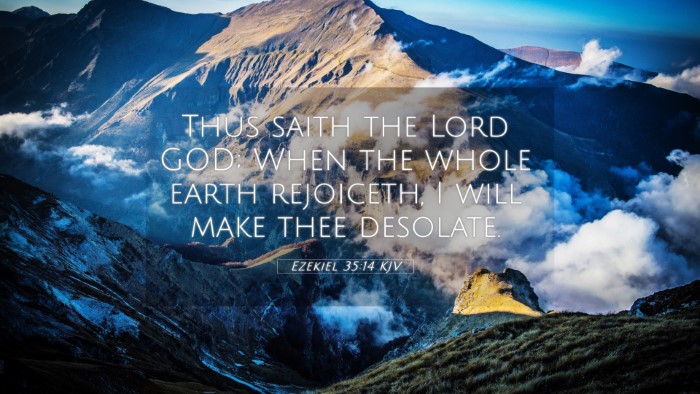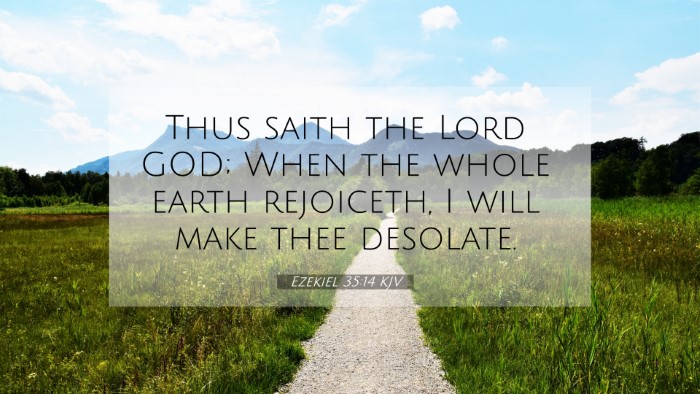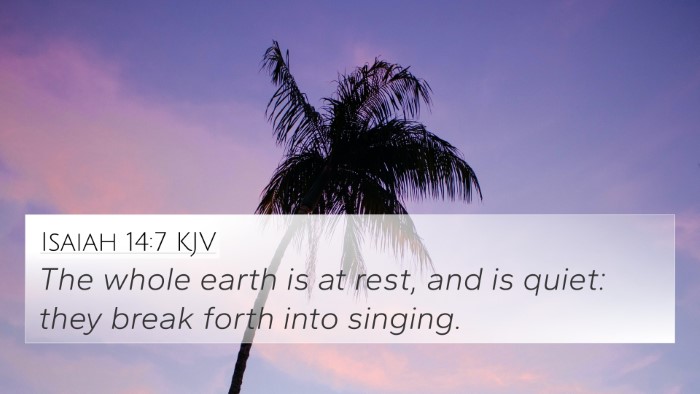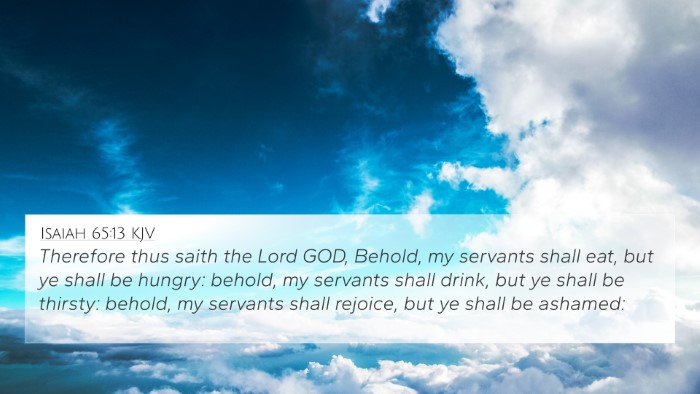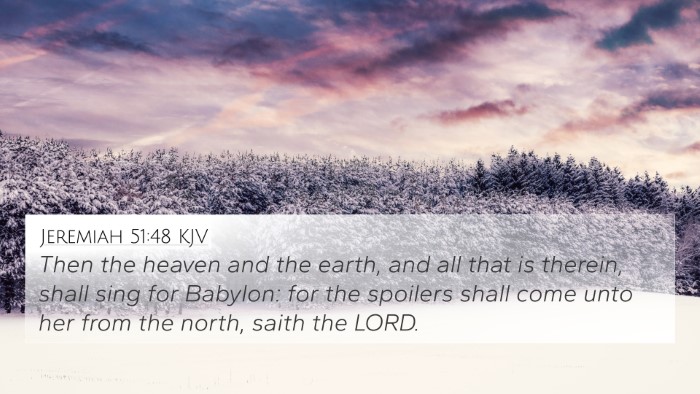Ezekiel 35:14 - Interpretation and Meaning
Ezekiel 35:14 states: "Thus saith the Lord GOD; When the whole earth rejoiceth, I will make thee desolate." This verse carries significant theological implications concerning God's judgment, the nature of desolation, and the context of divine retribution against Edom.
Contextual Background
The book of Ezekiel is filled with prophecy against various nations, with a particular focus on Israel and its neighbors. In Ezekiel 35, the Lord speaks directly to Mount Seir, which is representative of the Edomite nation. This chapter is a solemn warning regarding Edom's hostility toward Israel and their eventual downfall.
Key Themes in Ezekiel 35:14
- Divine Judgment: This verse indicates that God's judgment is inevitable, especially for nations that oppose His chosen people.
- Reversal of Fortune: The rejoicing of the earth symbolizes the joy that comes after God's deliverance for His people, contrasted sharply with the desolation intended for Edom.
- God's Sovereignty: It underscores God's control over nations, asserting that regardless of human plans, divine will shall prevail.
Commentary Insights
Insights from noted scholars like Matthew Henry, Albert Barnes, and Adam Clarke provide further illumination on this text:
Matthew Henry's Commentary
Matthew Henry highlights that this declaration of desolation comes at a time when the whole earth is rejoicing. He notes that such judgments are often unnoticed amidst worldly mirth and suggests a great cosmic irony — the people who are primarily responsible for Israel's suffering will experience ultimate destruction while the covenant community finds joy.
Albert Barnes' Commentary
Albert Barnes emphasizes God's promise of desolation for Edom as a direct consequence of their persistent enmity. He points out that the joy of others does not negate God's judgment — rather, it serves as a backdrop illustrating the finality of His plans against those who have sought to harm His heritage.
Adam Clarke's Commentary
Adam Clarke discusses the significance of the phrase "make thee desolate." He suggests that this desolation represents not just physical destruction but also spiritual alienation from God’s presence, which could be viewed metaphorically as a type of eternal separation from divine mercy.
Cross-References and Related Verses
The following bible verses illustrate thematic connections and support the understanding of Ezekiel 35:14:
- Obadiah 1:10-16: Speaks of the judgment against Edom due to violence done against Jacob.
- Isaiah 34:5-6: Describes God’s sword coming down upon Edom and the desolation thereof.
- Jeremiah 49:17: Declares Edom will become a desolate wasteland.
- Amos 1:11-12: The judgment against Edom for their perpetual anger towards Israel.
- Psalm 137:7: Remembers the day of Jerusalem’s fall, appealing for justice against Edom.
- Romans 12:19: A New Testament reflection on the vengeance of God over adversaries.
- Revelation 18:2: Prophetic echoes of desolation awaiting those turned against God’s people.
Theological Implications
The extract from Ezekiel 35:14 carries a profound message about the nature of divine justice and involvement in human affairs. Understanding this verse requires engaging with the broader narrative of scripture that covers God’s promises, covenant relationship with Israel, and the fate of nations that would oppose Him.
Conclusion
In conclusion, Ezekiel 35:14 serves as a reminder of the certainty of God’s justice. The desolation foretold is not merely about physical ruin; it speaks also to the moral and spiritual implications of standing against God's chosen people. The connections between this verse and other scriptures emphasize the consistent theme of God’s sovereignty and the historical reality of His judgment.
SEO Keywords Incorporation
This exploration of Ezekiel 35:14 can assist in navigating tools for Bible cross-referencing, offering insights on how to find cross-references in the Bible, and illustrating bible verses that relate to each other. In conducting a comparative Bible verse analysis, the verse stands prominently as an example of God's retributive justice echoed throughout scripture.

